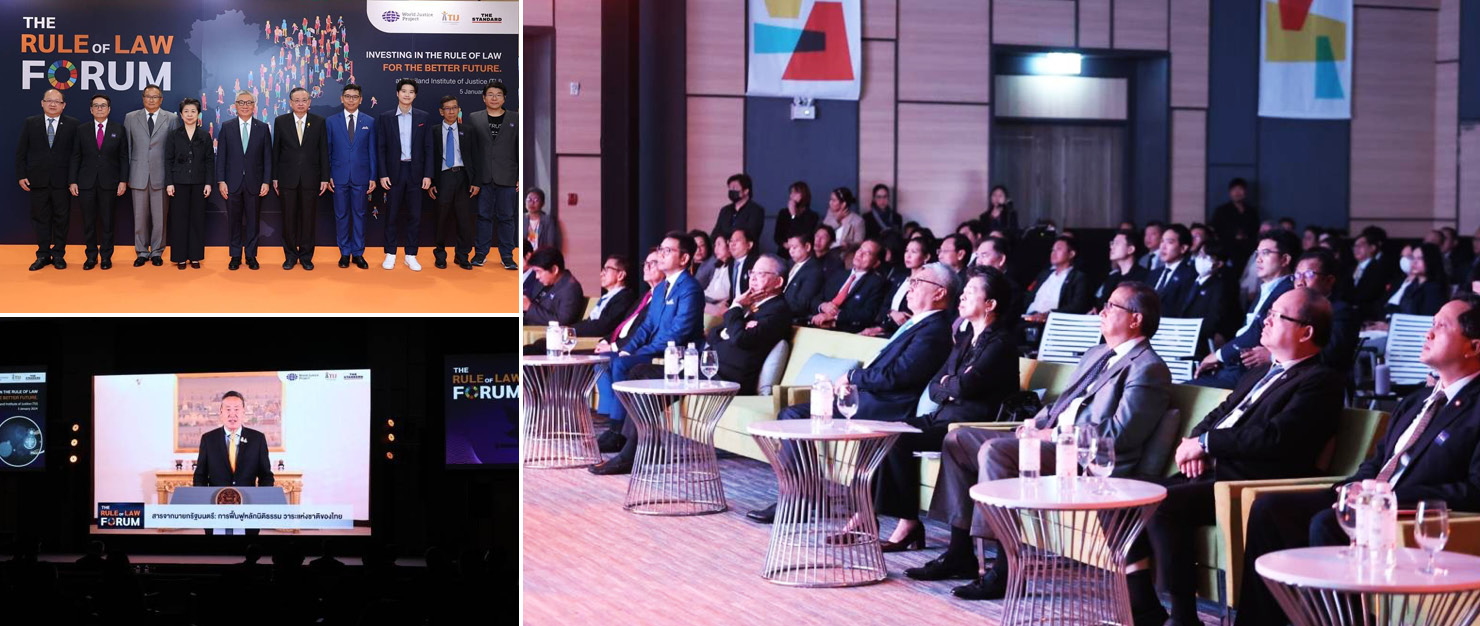

Thailand’s new prime minister is placing the rule of law at the center of his government’s priorities over the next four years. Prime Minister Srettha Thavisin announced his government’s commitment earlier this month at the Rule of Law Forum in Bangkok co-hosted by the World Justice Project (WJP), the Thailand Institute of Justice (TIJ), and The Standard news agency.
During his remarks, the prime minister stated his government will use the WJP Rule of Law Index as a tool to measure progress.
Thavisin emphasized that strengthening the rule of law will improve business relations, restore confidence of global investors, and fight corruption. WJP data shows that when the rule of law is strong, so is the economy.
He also stressed that improving the rule of law in Thailand will be a long-term, continuous effort.
The country ranks 82 out of 142 countries in the 2023 WJP Rule of Law Index, and its scores fall below the regional average in all eight factors measured by the Index. However, Thailand has shown improvement in its civil justice system over the last three years.
Last August, WJP and TIJ convened government, civil society, and private sector stakeholders at a three-day rule of law meeting in Bangkok. Over 100 experts explored the WJP data and policy implications, building momentum to create a rule of law roadmap for Thailand.
At that meeting, Thai officials signaled the desire to improve the country’s rule of law score by 30% and the prime minister’s latest remarks further solidified the importance of the rule of law after experiencing a three-year decline.
“I am delighted that WJP’s engagement with the Royal Thai government and partners in recent years has galvanized and strengthened efforts to examine the data, use it to inform policy options and make the rule of law a higher priority in the country,” WJP Executive Director Elizabeth Andersen said.
WJP continues to engage with governments, civil society, and non-governmental organizations in the Asia Pacific region to help improve the rule of law for all.






